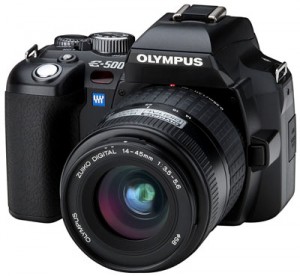Olympus confirmed reports Wednesday it was being sued by six Japanese trust banks seeking 27.9 billion yen ($273 million) for damages relating to a 2011 accounting scandal that consisted of $1.7 billion. The Tokyo-based company said in a statement that it had been given a notice by the plaintiffs’ attorneys that a lawsuit had been filed, but it had yet to be served with the suit.
Mitsubishi UFJ Trust & Banking Corp., Master Trust Bank of Japan Ltd., Japan Trustee Services Bank Ltd., Trust & Custody Services Bank Ltd., Nomura Trust & Banking Co., and State Street Trust & Banking Co. are looking for the compensation over alleged falsified financial statements submitted by the company over an 11-year period until 2011. The case was filed at the Tokyo District Court.
 The amount of money being sought in the latest lawsuit is the largest sum among the cases filed against Olympus, according to a statement made by spokesperson Tsuyoshi Oshima to Bloomberg News.
The amount of money being sought in the latest lawsuit is the largest sum among the cases filed against Olympus, according to a statement made by spokesperson Tsuyoshi Oshima to Bloomberg News.
In 2011, the globe’s biggest maker of the endoscope – a medical device that examines organs and the cavity of the body – conceded that it had slashed its net assets by $1.3 billion to hide past losses by raising fees to advisers and overpaying for takeovers.
This is the fifth lawsuit that the company has acknowledged publicly and so far 20 cases have been made to the courts totaling 85.6 billion yen ($841.7 million). During one of its latest briefing meetings, Olympus agreed to reduce its fiscal 2013 profit forecast to instead set aside $166.49 million in order to settle three cases – three publicly recognized cases were instigated by medical equipment maker Terumo Corp. and a few dozen foreign investors.
“This is just a reminder to the market of the contingent risk associated with the past of Olympus,” said Claudio Aritomi, a Tokyo-based analyst at Macquarie Group Ltd., in an interview with the Japan Times. “There was always the risk there could be more coming.”
Olympus has been engulfed in scandal since the accounting fiasco made news three years ago. It was made public when CEO Michael Woodford became a whistleblower and revealed that investment losses had tried to be hidden. He was dismissed from his post by challenging Chairman Tsuyoshi Kikukawa and the board over immense payments of acquisitions.
An investigation was established and Kikukawa was arrested a year later and indicted on alleged violations of the Financial Instruments and Exchange Act. This also hurt Olympus shareholders as its value diminished by 80 percent after the revelations were made.
Woodford, who claimed he received death threats, was given a reported $16 million in damages by Olympus. Around the same time, the photographic camera maker cut its global workforce by 2,700 jobs (or seven percent) and 40 percent of its manufacturing plants by 2015 to lower its costs.



